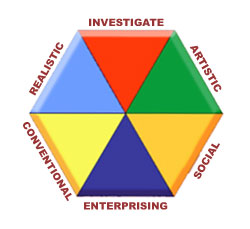Interests = Passion = Success

When you hear some of the best and brightest speak about what they do and how they got there, they use the word “passion” quite often. It makes sense, right? Most of the really successful people sacrificed a lot, put a majority of their energy and even finances into their venture.
One of the key characteristics when someone is really passionate is they know their interests, and they pursue them with vigor. Often, the success they experience is because they followed their interests and pursued avenues that would bring them pleasure.
I have heard all of the arguments:
“Joe, my passion doesn’t pay the bills.”
Or: “That’s great and all, but I live in the real world.”
I understand and respect those views, and let’s be honest, needing to make money is certainly something that we all need. Additionally, moving into a profession where you are respected or acknowledged is something that many people aspire to.
My question is: How are you going to succeed if you aren’t passionate enough to put in the work that needs to be done?
Often times, when I meet with students I ask them what their interests are. For some, knowing their interests is a very intuitive and simple process. Some “just know.” Others may need some added assistance. What is challenging for some is connecting what they like to do to the world of work.
Many career counselors believe that if you know what your interests are you can better identify careers that you are passionate about. Knowing your interests and being clear about how you want to use them can help you identify the “fit” of certain organizations or jobs.
For instance, certain environments may feel right for you while others may be a struggle just getting into your office. Usually this is because of the type of people that you are working with. For instance, the environment and the type of people that are attracted to an engineering occupation may be highly different than those of an educational environment.
So how can you can you mold your interests and possible careers?
Many jobs in the US are coded using something called Holland Codes, which classifies occupations using interests and examines the type of personalities that are attracted to certain types of work.
What are Holland Codes?
The theorist John Holland believed that one’s choice of career was an expression of their personality. He argued that there are six factors that could describe not only one’s personality but also the different types of working worlds that those personalities may be drawn to. Holland defined these six basic occupational themes (called Holland codes) that can be used to categorize occupations as well as individuals.
It is important to note a few concepts when examining Holland’s codes:
- Typically both people and occupations have 2-3 “dominant” codes
- Holland Codes examine interests not capability or skills
- Holland Codes do not “lock you in” to specific occupations
The 6 “factors” are as follows:

- Realistic “The Doers” – practical, physical, hands-on, tool-oriented
- Investigative “The Thinkers” – analytical, intellectual, scientific, explorative
- Artistic “The Creators” – creative, original, independent, chaotic
- Social “The Helpers” – cooperative, supporting, helping, healing/nurturing
- Enterprising “The Persuaders” – competitive environments, leadership, persuading
- Conventional “The Organizers” – detail-oriented, organizing, clerical
Typically, these 6 codes are represented graphically in a hexagon, which career counselors refer to as the “RIASEC hexagon.”
Click on the above links and see if you resonate with some of the descriptions.
How do I generate my codes?
The great thing is you don’t have to generate your codes on your own. In fact, you should seek out professional assistance from a career counselor from your school.
There are some great and highly respected assessment tools:
Strong Interest Inventory – Developed by three vocational psychologists named E. K. Strong, Jo-Ida Hansen and David Campbell. Based on the work of John Holland. The Strong Interest Inventory compares your interests to interests of people in certain occupations.
Self-Directed Search – Asks questions that examine interests and abilities, then produces a 3-letter Holland Code that guides the examinees to find careers that best match his or her skills and interests. The test provides a list of occupations (and college majors), along with their corresponding Holland Codes.
These tools are best used in conjunction with consulting a career counselor.
What do I do once I have them?
 Once you have reviewed your codes with a professional, you can start to do some research. One of my favorite tools is a web site, commonly referred to as O’net.
Once you have reviewed your codes with a professional, you can start to do some research. One of my favorite tools is a web site, commonly referred to as O’net.
I like this tool because it is considered our nation’s primary source of career information. You can do searches on different occupations based on multiple search factors. One of the criteria is to use your new found interests using your Holland Codes.
To search occupations on O’Net follow this path:
Click Find Occupations > Scroll to O’Net Descriptor > Use the drop down menu to pick Interests > Click on your most dominant Holland Code and then add your others using the drop-down menu
With this tool, you can search career information including:
- Tasks, skills, abilities
- Work contexts, styles, and values
- Related occupations and salary info
For additional assistance, contact your school’s career counselor.